Just as whitetail deer and wild turkeys have moved from the tall-and-uncut to suburbia, black bears must have gotten the memo, since they show up so frequently that sightings have become routine. The biology of this phenom is important for the safety of the bears and the public. But don’t panic! Bears aren’t seeking suburbanites as a new food source; they’re mostly young bears that have been kicked out of the family by mama bear (like rebellious teeneagers) and wander about seeking a new home. This post by Bill Bowden of the Arkansas Democrat-Gazette speaks directly to the subject.

Every spring, adolescent male black bears wander into Arkansas cities looking for food. They’re the nomads of bear society, kicked out of their dens to make room for the next litters and looking for easy meals. The Arkansas Game and Fish Commission gets about 120 legitimate bear nuisance complaints every year, said Myron Means, the commission’s large-carnivore coordinator.
The peak was 314 in 2007. Last year, there were only 71 complaints, the Arkansas Democrat-Gazette reported. The number of complaints corresponds directly with the availability of natural food in the forests. If a late frost kills the berry crop, as it did on Easter weekend in 2007, more young bears will look for food in towns, and the nuisance complaints will be high, Means said.
There was no late frost this year to exacerbate nuisance bear behavior. The National Weather Service site for Fort Smith said the last frost this year was March 7. That’s a month earlier than the 2007 frost, which was April 8.
Black bears are omnivores that eat primarily plants. But Means said black bears are “opportunistic feeders.” In towns and suburbs, that means they’ll get into garbage cans, dog food and bird feeders, he said. “If you’ve got bear problems, 99.9 percent of the time it’s food-related,” he said. “If the food’s gone, the bear leaves. I mean, they’re walking stomachs.”
Tell us what you think in the comments section below.

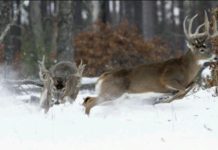
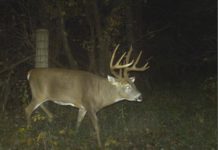
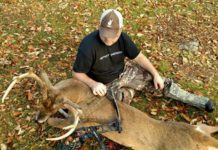
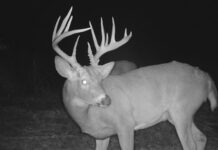


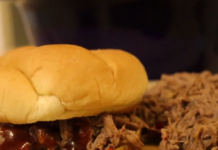

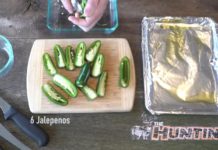

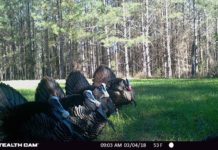

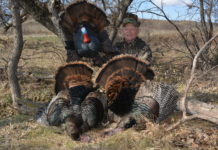

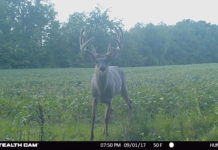
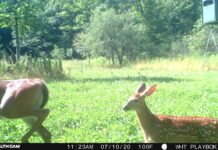
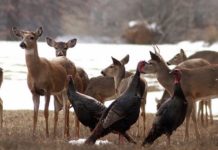

![The Best Deer Camp Chili [VIDEO] Deer Chili Ingredients, Tomatoes, Chili Spices](/wp-content/uploads/2015/10/Deer-Chili-Deer-Camp-Recipe-218x150.jpg)
![How to Call Elk Early in the Season [VIDEO]](/wp-content/uploads/2016/08/byers003-218x150.jpg)

![WEBBlackBear3[1]](/wp-content/uploads/2015/06/WEBBlackBear31.jpg)


![Idiots Disturb Hunter: How Would You Have Handled It? [VIDEO]](/wp-content/uploads/2015/10/DSC00110-e1474487693878-100x70.jpg)
![Albino Buck Shocked to Shed His Antlers [VIDEO]](/wp-content/uploads/2015/10/AlbinoDeer-100x70.jpg)